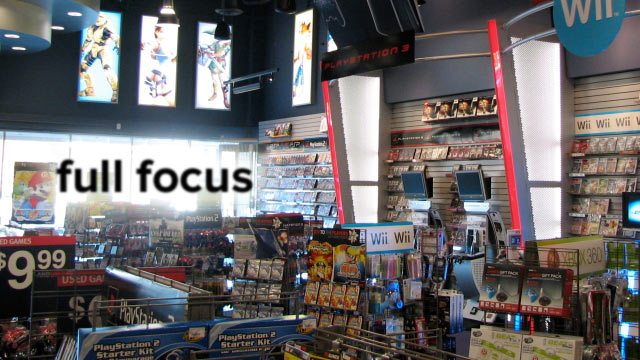
On March 31, 2011, video game retailer GameStop sent waves through the industry when it announced the acquisition of Spawn Labs and Impulse, two technology companies with a focus on digital distribution. Spawn Labs is a service that allows travelers to play games from their home console through their laptops and Impulse is a digital download service similar to Valve’s Steam but with only 10% of market share versus Steam’s 70%. The moves signaled that the brick-and-mortar retail giant had no intention of falling victim to the digital distribution movement. Rather, they only confirmed the inevitability of a digital future and that GameStop aimed to take a lead role.
Digital distribution is the concept that video games can be delivered through downloadable means as opposed to physical storage in cartridges and discs that can be bought through retailers such as Walmart, GameStop and Amazon. Over the past decade, digital distribution revolutionized the music industry with the wildly popular success of the Apple iPhone and the iTunes store. The thought is that digital distribution could have a similar effect on the video game industry in the next ten to twenty years, if not sooner.
Like the music industry, digital distribution produces many benefits for the gaming industry. The first is in the issue of controlling costs. The costs associated with traditional distribution do not come from the costs of making the discs and cartridges, which are relatively inexpensive in this day and age. Rather, one of the largest costs that video game publishers face come from agreements with retailers. In the video game industry, games are designed and programmed by units called developers such as Nintendo EAD, Infinity Ward and Rockstar Games. The developers then sell the intellectual property rights of their games to publishers such as Nintendo, Activision and Take Two who are then responsible for marketing and getting the game sold.
The best way for publishers to sell their games is to sell them as consumer electronics devices and software through consumer retail outlets such as WalMart, Best Buy and GameStop. However, getting shelf space at a retail store is not a simple task. Creators of all types of consumer goods are eager to get their products on store shelves to give them access to the millions of customers that the retail stores attract.

Given such a limited supply of shelf space and unlimited demand for it, retailers hold a significant advantage in the relationship. They can afford to be selective about what products go on their shelves and at what price those products can sell for. In the video game industry, rather than dealing with each individual publisher separately, retailers negotiate with a small set of companies called distributors which represent many different publishers. And although the cost of hiring a distributor is small for the publisher, the retailer exerts its true power when it takes a significant portion of the final sale price away from the publisher as a fee for using store space. According to Wedbush Morgan Securities analyst Michael Pachter, this fee eats up about 20% of the profit margin ($12 of a $60 game). Given that Pachter estimates that publishers make on average $17 on a $60 game, this is a significant cost that can be overcome.
Furthermore, digital distribution offers further benefits beyond simply costs. In this industry, game players often find themselves siding with game developers as they are the ones who actually design the games and often have their creative freedom restricted by the corporate publishers. However, one of the unique issues in this industry that unites the developers and publishers against the players is that of used games. Publishers only make money on sales of new games. Units of used games sold in the second-hand market are only made by individual sellers, making GameStop the major beneficiary of this market as it essentially serves as a market exchange.
With digital distribution, each game sold is essentially a new game. This helps publishers immensely in realizing a considerable portion of profits lost to the used games market. Finally, digital distribution gives gamers access to games that are difficult to find such as Ico and Suikoden II and allows publishers to realize a profit on them, giving them an incentive to have their game put out there.
Technology considerations aside, a digital distribution future is only inevitable. The current generation of gaming was the first serious push into this new frontier and for the most part it has been a success. There have been a few stumbling points such as Electronic Arts and Ubisoft outraging the gaming community with their attempts to circumvent the used games market, illustrating the transition to a digital future is far from seamless. However, digital distribution has fueled an explosion of indie game development, made games from previous generations accessible to new gamers and discounts to gamers through services such as Steam.
It is for these reasons that GameStop took the bold step and effectively reinvented itself with its announcement last month. Seeing the troubles that Blockbuster faced in competing with Netflix and traditional bookstores such as Borders and Barnes and Noble faced with e-Readers, GameStop attempted to avoid becoming another relic of history. But does the company possess the expertise to operate a completely different business model? Only time can tell, but with Steam owning 70% of the digital distribution market, it’s clear more competition is needed and GameStop is just the latest player ready to take a shot at it.
In Full Focus, a recurring theme that is presented is how unpredictable the video game industry is in terms of how it evolves and why it makes it so exciting to follow. Just like all other events, the transition to digital distribution will be one filled with trial and error, successes and hurdles. However, the notion of a more digital future is one of the few certainties that this industry can lay claim to.




 ShareThis
ShareThis







If digital distribution makes costs plummet to more reasonable rates, I’ll back it up 100%.
It’s kinda funny… I’ve always despised Gamestop because of their +$5 additional fee on the latest games and because the employees I usually meet there are a bunch of college-agers who act like jerks and couldn’t care less about video games. There’s even been times when a particular clerk foolishly insulted the games and system I preferred and purchased.
But a couple days ago, I was very impressed with my local Gamestop. The employees were all cordial and friendly, I picked up a couple recent releases (Golden Sun DS and Kirby’s Epic Yarn) for uber cheap, and the whole “elitist” atmosphere I’ve come to expect from their stores wasn’t there.
And I sure hope this becomes a regular occurrence.
I don’t mind digital distribution of games, but I still prefer having a hard copy of my games. I also dislike that new games usually cost the same as the store copy that gives me an actual disk. Til that changes most of my games will be purchased at a store